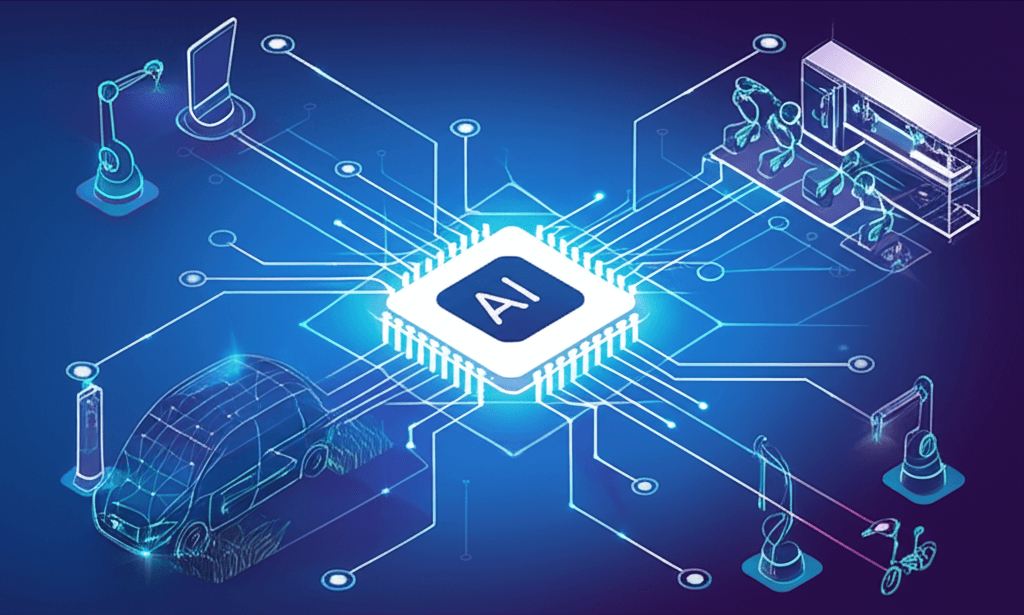Bosch Commits €2.5 Billion to AI, Transforming Mobility, Industry, Consumer Tech
Bosch bets €2.5B on AI to power future mobility, factories, and homes, while warning Europe against stifling regulation.
June 26, 2025

In a major strategic push to cement its position at the forefront of technological innovation, German conglomerate Bosch has announced it will invest more than €2.5 billion into the development and application of artificial intelligence by the end of 2027.[1][2][3] This substantial financial commitment underscores the company's belief that AI is a critical innovation booster and a primary driver for future growth across its diverse portfolio.[2][4] The investment aims to embed AI into the very fabric of its products and services, spanning its core businesses in mobility, industrial manufacturing, and consumer goods, transforming its "Invented for life" philosophy into tangible, intelligent solutions for the modern world.[3][4] The move is accompanied by a vocal campaign from the company's leadership, urging European lawmakers to foster a balanced regulatory environment that doesn't stifle progress.[5][6]
A significant portion of this investment is earmarked for revolutionizing the future of mobility, a sector where Bosch has long been a dominant supplier. The company is particularly focused on assisted and automated driving, anticipating that its sales from related software, sensors, and high-performance computers will more than double to exceed €10 billion by the mid-2030s.[2][3][7] While acknowledging that the market adoption for these technologies has been slower than initially expected, Bosch remains confident in their long-term success.[2][8] AI is central to this vision, utilized to enhance a vehicle's ability to visualize its surroundings, anticipate the behavior of other road users, and calculate the safest route to a destination.[2][3] Beyond in-car systems, Bosch is leveraging generative AI to dramatically shorten development times, using its vast database of vehicle sensor data to train and validate automated driving functions more efficiently.[9][2] In the industrial sphere, Bosch is pioneering the next level of AI with what it terms "agentic AI."[10] This technology involves creating autonomous multi-agent systems within manufacturing plants that can independently monitor machinery, predict maintenance needs, and optimize operational workflows, thereby reducing unplanned downtime and boosting productivity.[4][10] Bosch is already deploying these systems in its own facilities and plans to launch a platform in late 2025 that will enable external companies to develop their own agentic AI solutions with little to no programming expertise, democratizing access to advanced manufacturing technology.[11][1][3]
The integration of AI at Bosch extends far beyond the factory floor and the future of driving, reaching directly into consumers' homes and daily lives. The company is increasingly embedding intelligent features into its consumer products to enhance convenience and safety.[12][4] Examples include Series 8 ovens equipped with AI that can recognize up to 80 different dishes and automatically apply the optimal cooking settings, e-bikes that use AI to provide accurate range predictions, and smart baby cribs that monitor an infant's vital signs.[1][10] This deep-seated product strategy is reflective of a company-wide cultural shift. Bosch established its own Center for Artificial Intelligence (BCAI) back in 2017, which now operates globally across locations in Germany, the U.S., India, and Israel, bridging the gap between fundamental research and real-world application.[13][14] The company currently employs nearly 5,000 AI specialists and, through its internal AI Academy, has provided training to over 65,000 associates since 2019, ensuring its workforce is prepared for the dawning age of AI.[9][1][4] This commitment is reinforced by a formidable intellectual property portfolio, with Bosch having filed over 1,500 AI-related patent applications in the past five years, making it one of Europe's leading applicants in the field.[9][11][2]
Parallel to its massive investment, Bosch has taken on a prominent role in the discourse surrounding AI governance. CEO Stefan Hartung has repeatedly cautioned that Europe risks falling behind in the global AI race due to overly restrictive regulations.[5][15][6] Speaking at a recent tech conference, Hartung argued that a combination of bureaucracy and "strict, but also vague, requirements" makes Europe a less attractive environment for AI development compared to the United States and China.[15][6] He warned that Europe could "regulate itself to death" by attempting to legislate against the pace of technological progress, urging lawmakers instead to create a focused framework that covers only the most critical aspects.[15][6] This call for regulatory prudence comes as the U.S. and EU ramp up funding, with the U.S. announcing private sector investments of up to $500 billion for AI infrastructure and the EU planning to mobilize €200 billion.[5][6][16] As the holder of the most AI patents in Europe, Bosch's warning carries significant weight, framing its investment as a commitment that requires a supportive, not suffocating, political landscape to truly flourish.[5][17]
In conclusion, Bosch's €2.5 billion investment is a clear and decisive strategy to not only participate in but lead the AI revolution. By deeply integrating artificial intelligence across its mobility, industrial, and consumer sectors, the company is fundamentally redefining its products and processes for a connected and automated future. This technological push is built on a solid foundation of early research, extensive patent development, and a comprehensive internal training program. However, Bosch understands that its success is not solely dependent on capital and innovation. Its concurrent advocacy for balanced and pragmatic regulation in Europe highlights the critical relationship between technological progress and public policy. The company is making a calculated wager that its significant investment, paired with a favorable innovation environment, will secure its role as a global leader in an era increasingly defined by artificial intelligence.
Sources
[3]
[5]
[10]
[11]
[12]
[13]
[14]
[15]
[17]